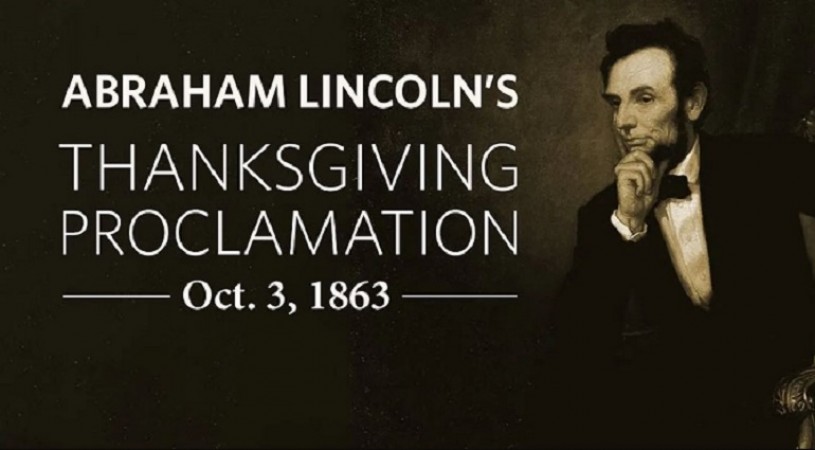
This Day in History October 3:: In the midst of a nation torn apart by civil war, President Abraham Lincoln made a historic declaration that would forever shape the way Americans express gratitude. On October 3, 1863, he proclaimed the observance of Thanksgiving Day, marking a pivotal moment in American history. This article delves into the significance of Abraham Lincoln's Thanksgiving Proclamation and its enduring legacy.
The Context of 1863:
The year 1863 was a turbulent time for the United States. The Civil War, which had erupted two years earlier, was at its peak. The Battle of Gettysburg, fought from July 1 to July 3, 1863, had just concluded, leaving behind a staggering toll of more than 50,000 casualties. While the battle resulted in a Union victory, the cost in terms of lives lost and the nation's division weighed heavily on President Lincoln's mind.
A Nation Divided:
The United States was deeply divided along geographic, political, and ideological lines. The Civil War pitted the North against the South, and the nation was grappling with profound questions about the preservation of the Union, the abolition of slavery, and the future of democracy. In such tumultuous times, President Lincoln sought a unifying gesture that would help heal the wounds of a fractured nation.
Abraham Lincoln's Proclamation:
On October 3, 1863, President Lincoln issued a proclamation that called for the observance of a national Thanksgiving Day. This historic document acknowledged both the victories and the sacrifices of the Civil War. In his proclamation, Lincoln expressed gratitude for the "bounties, which are so constantly enjoyed that we are prone to forget the source from which they come." He urged Americans to come together and "set apart and observe the last Thursday of November next as a day of thanksgiving and praise to our beneficent Father."
The Legacy of Thanksgiving:
Abraham Lincoln's Thanksgiving Proclamation was significant for several reasons:
Unity in Divisive Times: Lincoln's call for a national day of thanks was a powerful symbol of unity during a time when the country was deeply divided. It provided a shared purpose and a moment of respite from the war's hardships.
Acknowledging Gratitude: The proclamation encouraged Americans to reflect on the blessings they enjoyed and express gratitude for them. It reminded citizens to appreciate the abundance in their lives, even in the face of adversity.
Tradition-Building: Lincoln's proclamation laid the groundwork for the modern Thanksgiving holiday, establishing the tradition of celebrating Thanksgiving on the last Thursday of November. It set a precedent that subsequent presidents would follow.
Abraham Lincoln's Thanksgiving Proclamation of 1863 remains a cornerstone of American tradition and a poignant reminder of the power of gratitude during challenging times. Today, Thanksgiving continues to bring families and friends together to give thanks, share meals, and appreciate the blessings of life. As we commemorate this historic day, let us remember the significance of Lincoln's proclamation and the enduring spirit of unity and gratitude it represents.
This Day in History: When Was Dr. Annie Besant Born?